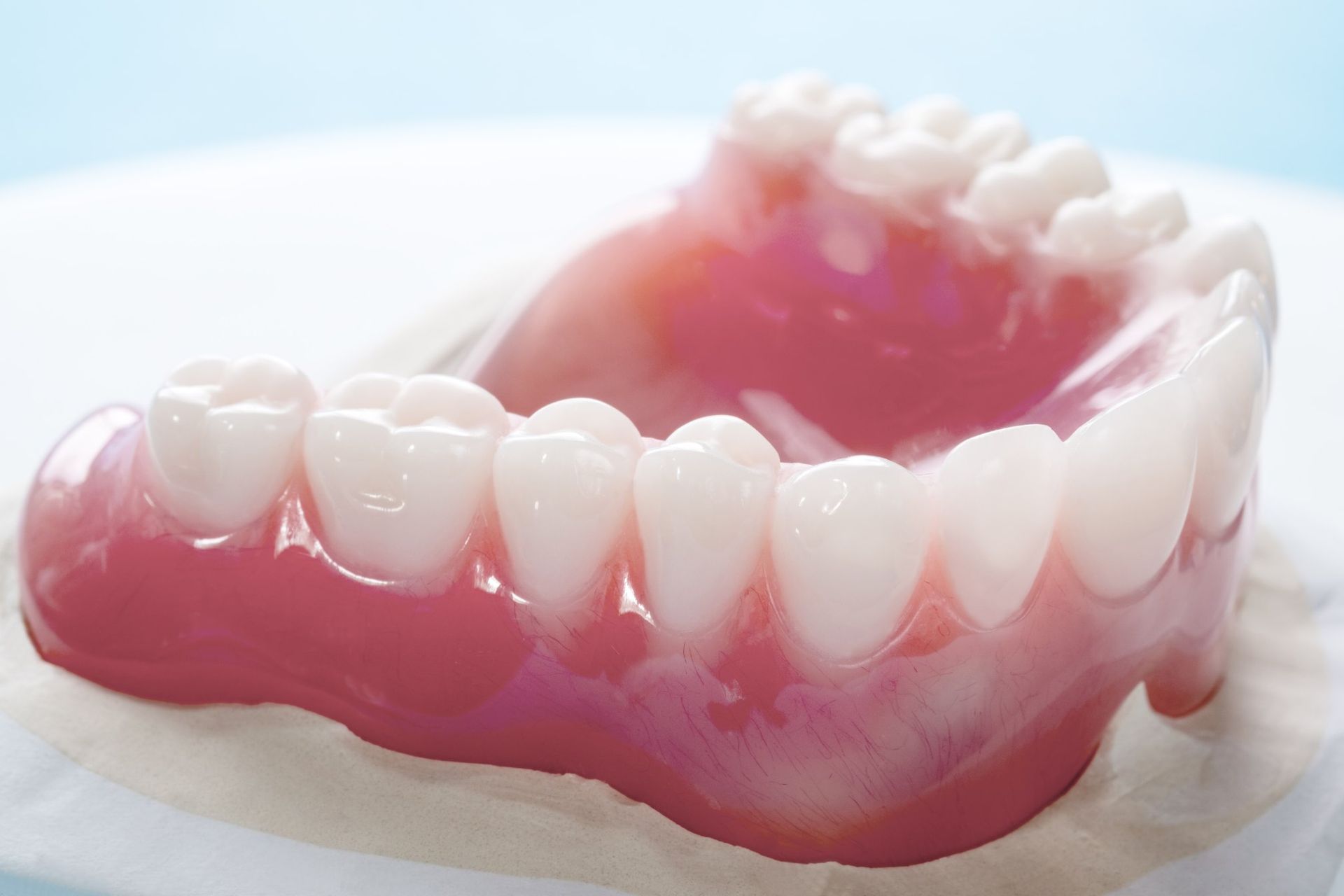How to Care for Your Dentures: The Ultimate Guide

Dentures can make a significant difference to your quality of life—restoring the ability to eat, speak and smile with confidence. But like natural teeth, they need regular care to stay clean, comfortable and functional. Whether you’re new to wearing dentures or have had them for years, knowing how to look after them properly is key to extending their lifespan and protecting your oral health.
In this guide, we’ll walk you through everything you need to know about day-to-day denture care, handling, cleaning and when to seek professional support.
Why Proper Denture Care Matters
Dentures sit directly on your gums and, in some cases, rely on the surrounding soft tissues and bone for support. This makes proper care essential—not only to keep the denture in good condition, but also to avoid irritation, infection or discomfort in the mouth.
Well-maintained dentures are:
- Less likely to cause sore spots
- More hygienic and pleasant to wear
- Less prone to staining or odour
- Likely to last longer before needing repair or replacement
Daily Cleaning Routine
- Rinse After Eating
Remove your dentures and rinse them under running water after meals. This helps dislodge food particles and reduces the risk of plaque buildup. - Brush at Least Once a Day
Use a soft-bristled toothbrush or a brush made for dentures. Clean all surfaces of the denture using a non-abrasive denture cleaner. Avoid regular toothpaste, as it can be too harsh and cause scratches. - Soak Overnight
When not in use, dentures should be kept moist. Soak them in water or a suitable denture cleaning solution overnight to prevent them from drying out or losing shape.
Caring for Your Mouth
Even with full dentures, oral hygiene remains important. Use a soft toothbrush or gauze to gently clean your gums, tongue and palate each day. This helps stimulate circulation and remove plaque or debris.
If you wear partial dentures, be sure to brush and floss any remaining natural teeth daily, and pay close attention to areas where the denture comes into contact with the teeth and gums.
How to Handle Denture Safely
Dentures are durable but not indestructible. Always handle them with care to avoid cracks or breakage:
- Fill the sink with water or lay down a towel when cleaning your dentures to prevent damage if they are dropped.
- Hold dentures firmly but gently—especially when brushing around clasps or thinner areas.
- Never bend or adjust your dentures yourself.
When to See Your Denture Provider
Routine check-ups are important, even if your dentures seem fine. Over time, the shape of your mouth changes, which can lead to a poor fit, irritation or difficulty with chewing and speaking. You should contact your denture provider if:
- Your dentures feel loose or unstable
- You experience soreness or irritation
- You notice cracks, chips or changes in shape
- It’s been more than 12 months since your last review
Relines, adjustments or a new set may be recommended depending on the condition of your denture and your oral health.
A Few Extra Tips
- Avoid hot water—it can warp the denture material
- Don’t use bleach—this can damage both the base and artificial teeth
- Store safely—keep dentures in a clean container out of reach of pets or children
- Never skip cleaning—bacteria and fungi can build up quickly without daily care
Caring for your dentures is a simple but essential routine that protects your comfort, health and investment. By following the tips above and keeping up with regular reviews, you’ll help ensure your dentures remain a supportive part of your everyday life.
If you’re unsure about your denture care routine or feel something isn’t right, contact Complete Denture Clinic for personalised advice.







